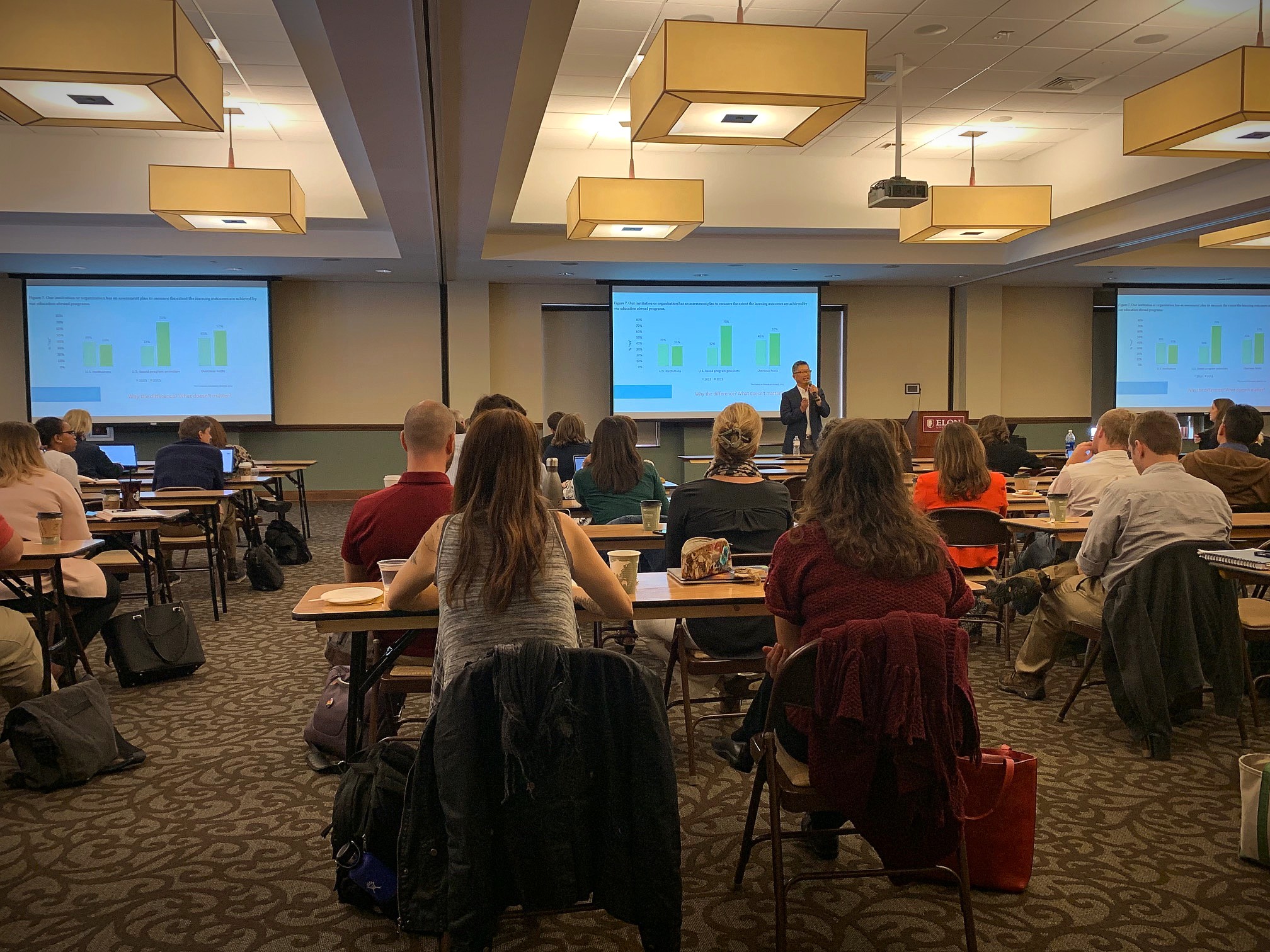David Wong, associate professor of educational psychology and educational technology at Michigan State University, served as guest speaker for the second Global Education Symposium.
More than 100 educators from across the nation gathered at Elon University on Friday for a day of learning and discussion at the second Global Education Symposium.

The goal of the event, now in its second year, is to engage faculty and staff from Elon and other universities in a conversation about the many aspects of global education and to help foster global competence in their campus communities.
“I started the symposium with the intention of supporting our goals as educators, which of course includes engaged learning in a global context,” said Paula DiBiasio, associate professor of physical therapy education.
The 2019 symposium centered on the theme “Thinking differently about intercultural competence.” During the event, educators examined the definition and current approaches to developing intercultural competence in university students. Attendees learned how to cultivate an approach to intercultural competence that considers the characteristics of the students, environments and contexts of individual institutions. They also explored new approaches to developing intercultural competence skills.
The event began with a lecture by guest speaker David Wong, associate professor of educational psychology and educational technology at Michigan State University. Wong’s lecture, “Intercultural competence: A careful examination of its meaning,” detailed research about how to define intercultural competence and why it matters.
Wong referenced Darla K. Deardorff, executive director of the Association of International Education Administrators, who worked with scholars from around the world to define intercultural competence as “the ability to communicate effectively and appropriately in intercultural situations based on one’s intercultural knowledge, skills and attitudes.”

After fielding edits to the definition from educators at the symposium, Wong used examples from Michigan State University — like an emphasis on study abroad and attracting international students — to further explain intercultural competence and its real-world applications. Wong said it’s important for faculty and staff to find ways to foster intercultural competence and apply it to their personal teaching methods while also aligning with the values of their respective institutions.
“The message here is to be aware of what your institution values, so that when you do your own work, you can sort of shape it and design it in a way that produces products that are of value to your university,” Wong said.
The symposium also challenged attendees to consider alternative approaches to developing intercultural competence in students, and in an afternoon session, participants had the opportunity to apply Wong’s ideas, designing activities particular to their students and institutional context.
The Global Education Symposium is a collaboration between Elon’s Department of Physical Therapy Education Global Learning Opportunities program; Isabella Cannon Global Education Center; the Center for the Advancement of Teaching and Learning; and the Center for Research on Global Engagement.
For more information about Elon’s approach to global education, visit the Isabella Cannon Global Education Center’s website.



